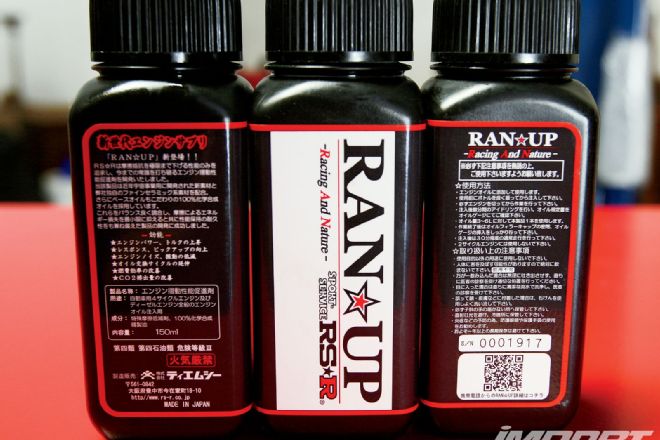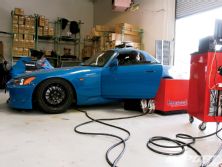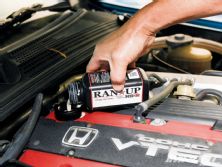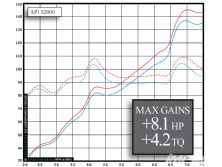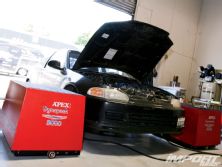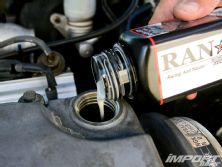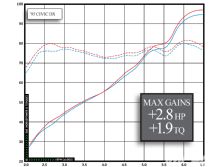Testing by Scott Tsuneishi
Transplanting to SoCal from the East Coast when I took this job a few years ago, I wasn't exactly current on much of the area's lingo. Being called "fool" by my new friends threw me off at first, and I didn't know whether them calling my car(s) "janky" was a good or bad thing. Come to think of it, I'm still not sure whether "putting in work" means meeting a deadline, or engaging in a drive-by activity that could land me 25 to life.
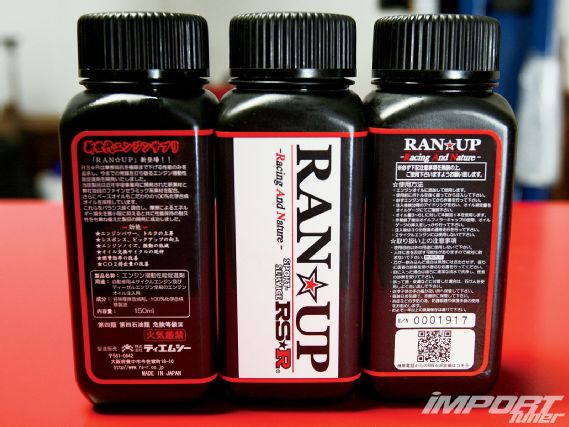 |
RS-R Ran-Up Engine Oil Additive - Fact Or Fiction
|
RS-R Ran-Up Engine Oil Additive - Fact Or Fiction
One slang term more relevant to the automotive industry first reared its head when we discussed creating this very department of the mag: "snake oil". Originally an ancient Chinese homeopathic remedy derived from the Enhydris Chinensis (Chinese water snake) to treat joint pain, once eighteenth-centure English salesmen fraudulently advertised their version of the stuff to cure seemingly un-ending medical maladies, the term became the preferred nomenclature for a hoax product. At least in Southern California, where (coincidentally?) small bottles of mysterious substances promising to deliver every imaginable benefit to vehicle performance litter the shelves of auto parts stores, the pages of magazines, and flashing cyber-space banners on the e-pages of your favorite automotive Internet resource. This month we test a new one.
The Claim: RS-R's new engine oil additive can increase horsepower and torque. When our friends at RS-R first came to us with their Ran-Up oil additive, we immediately knew it had a place in "Fact or Fiction". Composed of an extremely fine power-based lubricant suspended in a liquid lubricant, RS-R claims the substance was developed by the aerospace industry to adhere to the metallic surfaces of machinery operating in zero-gravity climates, where oil retention/re-accumulation would otherwise be a problem. Also according to them, a small amount of the stuff increases the lubricity of engine oil down here on Earth (its powder-based lubricant small enough to pass through filter media), cutting frictional energy losses, and allowing cars to turn out more horsepower and torque with increased fuel economy and decreased emissions.
They even offered some outlandish claims to back it up: adding a bottle to a Nissan 350Z improved output by 20 whp (a whopping 40 whp in a modified R32 GT-R); adding a bottle to a Prius improved fuel economy by 4 mpg; adding half a bottle to a Harley kept its mirrors from vibrating at freeway speeds; and adding a few drops to the impact gun in their garage helped it rev quicker. "Once we saw how well the stuff worked," exclaimed Ben Chong, Director of Business Development at RS-R. "We added it to everything we could find that used oil. It doesn't work so well in transmissions, but it does wonders for differentials!"
For our purposes this month, we chose to stick with power testing Japanese imports, by dyno-ing Senior Editor Scott Tsuneishi's '95 Civic DX, and the AP1 S2000 of one loyal, but anonymous A'PEXi employee, both at A'PEXi USA headquarters in Orange, CA. Each car was bolted to two Dynapack 3000 dynamometers and run back-to-back, first with only their native engine oil coursing through their galleys, then again with the proper amount of Ran-Up added.
The Verdict: FACT
With the addition of Ran-Up, horsepower and torque output increased consistently across the powerband of each of our test cars. And because the chemicals in Ran-Up do not act as a thinning agent to engine oil (meaning it won't simply turn your 40-weight oil into 20-weight oil for increased output), there's a good chance it could increase engine life as well. "We've been quietly testing this stuff in Super GT racecars for years," adds Ben. "We've seen it shave as much as two seconds off lap times in our road-race cars, and none of those engines have experienced bearing failure, even after all this time."
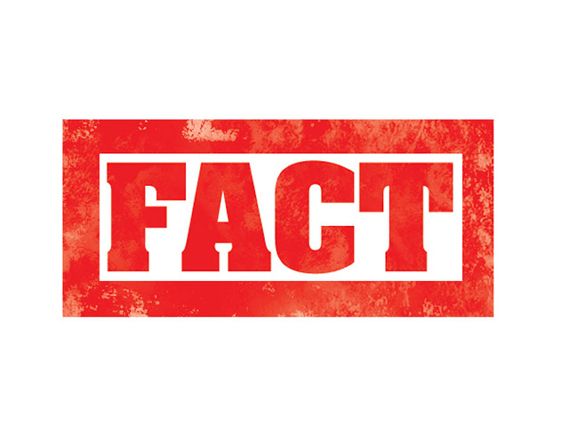 |
RS-R Ran-Up Engine Oil Additive - Fact Or Fiction
|
RS-R Ran-Up Engine Oil Additive - Fact Or Fiction

